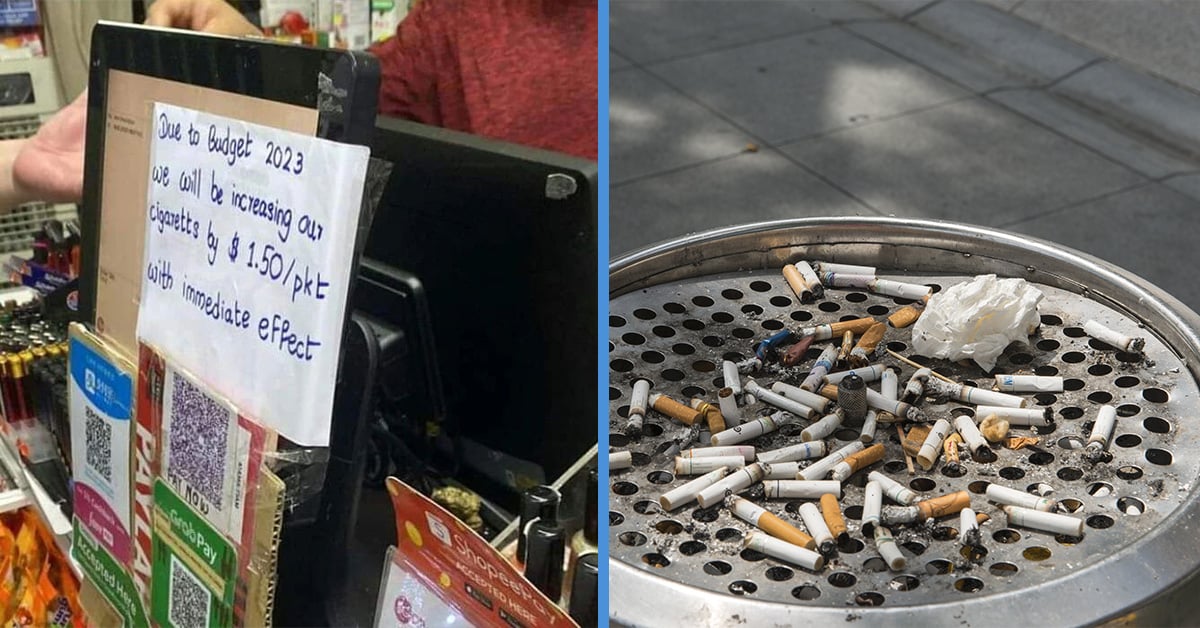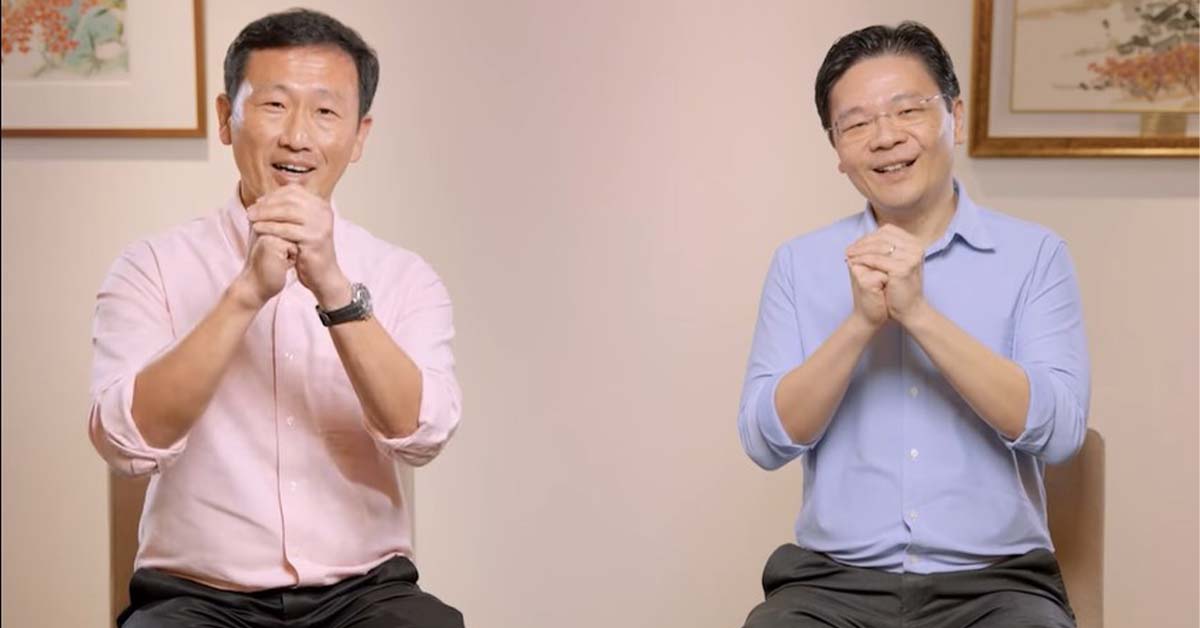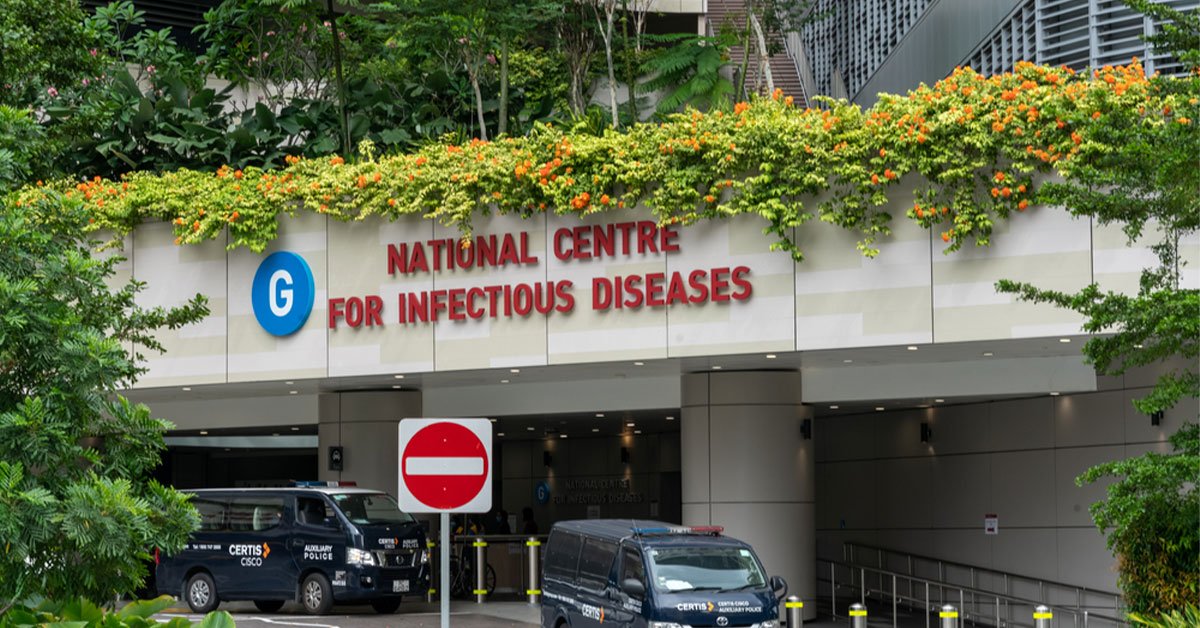Finance Minister and Deputy Prime Minister Lawrence Wong covered many things during his speech at Budget 2023.
Notably, smokers will now have to pay more for all tobacco products.
In fact, the retail price of cigarettes went up by more than 10% overnight.
The news was probably a Valentine’s Day nightmare for smokers.
Here’s what you need to know.
Smokers to Pay More for All Tobacco Products
With effect from 14 February 2023, smokers now have to pay more for all tobacco products.
Yes, all.
Tobacco products include cigarettes, cigars and smokeless tobacco, to name a few.
This decision comes in a Government move to raise the excise duty on all tobacco products by 15%.
Calculation of Price Change
If you thought that the current tax of 42.7 cents per cigarette stick was expensive, think again.
Users now have to pay about 49.1 cents per stick of cigarette.
If you’re lazy to do the calculations yourself, the Ministry of Finance (MOF) said that a 20-stick pack of Marlboro cigarettes is estimated to be sold at $15.52.
That’s a $1.50 increase from the previous $14.
A slight increase in the price of your neighbourhood coffee shop’s teh-c doesn’t seem too far-fetched anymore.
In addition, the excise tax incidence on the packet of cigarettes will be about 75% before GST.
The Straits Times noted that the excise tax incidence measures the excise duties levied on a pack of cigarettes as a proportion of the total retail price.
Smokeless tobacco products also have an increase in the duty levied, now being 37.8 cents per gram.
This is a considerable increase from 32.9 cents previously.
MOF reasoned that the change is “comparable to countries such as New Zealand, France and Australia”.
Furthermore, the World Health Organisation (WHO) recommends a minimum 75% tax share of the retail price of tobacco, meaning the new changes align with WHO’s recommendation.
Why the Change?
If you didn’t know, excise duty is levied on goods manufactured in or imported into Singapore.
The excise duty on all tobacco products was raised to discourage tobacco consumption.
DPM Wong mentioned many things in his speech yesterday.
With the increase in GST vouchers and assurance packages to help offset GST and inflation, you may be wondering where all the money will come from.
Firstly, the Government will get the money from higher tax rates on properties and luxury cars.
Secondly, the money will be sourced from the increased excise duty levied on tobacco products.
Thanks smokers for helping Singapore out.
According to DPM Wong, the increase in excise duty for all tobacco products is expected to generate about $100 million in additional revenue a year.
Here’s a simplified summary of DPM Wong’s speech if you didn’t manage to catch everything:
How Retailers are Reacting
Wake Up, Singapore posted a photo on their Facebook page showing how some retailers were using makeshift signs to make customers aware about the price change.
Channel News Asia also reported that shortly after Budget 2023, many retailers saw a lot more customers looking for cigarettes at around 5 pm.
At least two shops have decided to stop selling cigarettes for now since they don’t know what to do yet.
This decision was made even though they still had tobacco on their shelves.
The shopkeepers didn’t tell Channel News Asia when sales would be resumed.
The Fight Against Tobacco
Smoking causes various chronic health conditions such as cancer, heart disease, stroke, lung disease and type 2 diabetes.
It is no wonder that our Government has been trying so hard to reduce the number of smokers in Singapore.
The fight against tobacco has existed since 1970 when smoking was banned in all cinemas and buses.
More recently, in 2018, Singapore saw a ban on e-cigarettes and vape and a 10% increase in excise duty for all tobacco products.
So the 15% increase in excise duty for all tobacco products this year is an even more significant jump.
The minimum legal age for purchasing, using, possessing and selling tobacco products has increased a couple of times.
On 1 January 2019, the minimum legal age was first raised from 18 to 19.
The minimum legal age was raised again exactly a year later, from 19 to 20.
Finally, the minimum legal age was raised to 21 on 1 January 2021 and has remained the case ever since.
Featured Image: Facebook (@Wake Up, Singapore) + jumoobo/ Shutterstock.com



